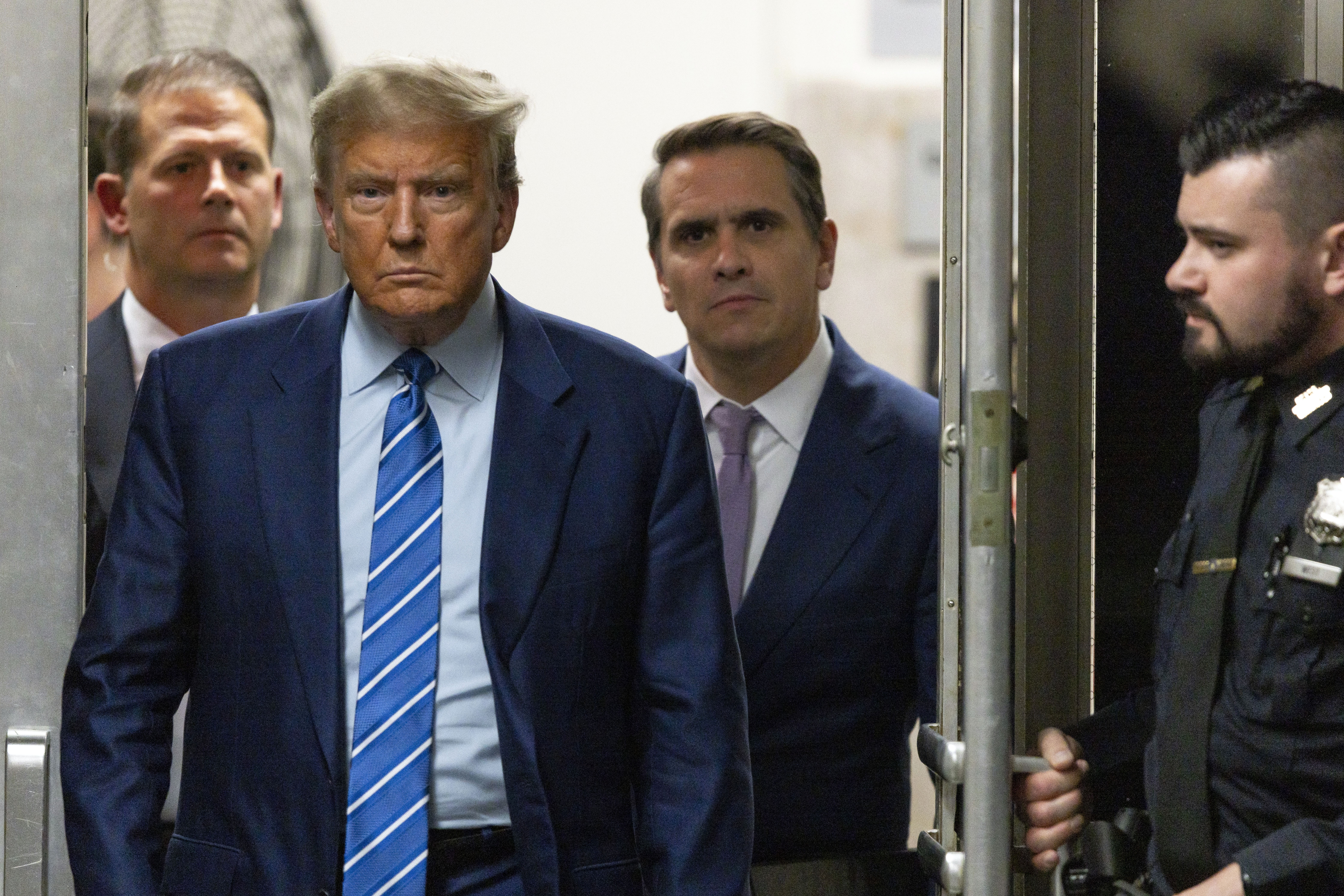WASHINGTON - The 100-day yardstick applied to a new president can also be used to measure achievements on the other end of Pennsylvania Avenue.
The 111th Congress made a mad dash in its early weeks in office: Under pressure from the White House and under the weight of a deteriorating economy, Congress pushed through massive government spending in what members from both parties described as lightening speed for a deliberative body.
While Congress opened the nation's checkbook with billions in new and expanded spending, much of the action on Capitol Hill focused on reflecting public outrage. Bank CEOs were hauled before a House committee and taken to task for their use — some would argue misuse — of bailout money.
The bank executives lined up shoulder to shoulder on a collective hot seat, but often their answers lacked the transparency Congress wanted: The questioning from members was often a mix of disbelief and disdain. Representatives recounted how those back home still could not get the loans needed for homes or small businesses even after the injection of taxpayer billions into the banking system.
This Wall Street vs. Main Street clash intersected on Capitol Hill. Many members of Congress acknowledged they had not done enough to demand answers and oversight when they passed the alphabet soup of bailouts: TARP and TALF. With last fall's dire predictions of an imminent financial collapse, Congress rushed through a bailout plan lacking clear rules and expectations.
Seeing that it didn't fix the credit crisis, public dissatisfaction grew and Congress felt that heat.
Alongside bailout fatigue, one word became the most politically charged of the new session: bonus.
U.S. & World
The fine print
A fever spread across Capitol Hill when lawmakers learned that taxpayer money had bankrolled bonuses for some on Wall Street who may have contributed to the meltdown. While everyday folks feared layoffs as they watched their 401(k)s melt and their home values diminish, Congress knew bonuses as high as seven figures would enrage constituents.
But Congress could — or should — have seen it coming.
Many of the bonuses for Wall Street types were in the fine print of contracts available to lawmakers. But this fine print seemed to slip past most public officials until the bonus checks were cut.
The House — even more than the Senate — can be a mood ring for what the country is feeling. And there was plenty of drama both genuine, and perhaps embellished, coming out of that chamber.
When the mostly government-owned insurance giant AIG started paying retention bonuses, the House tried to shame and compel AIG to give the money back despite legal contracts. The House voted to tax the bonuses at a 90 percent rate. The White House signaled that using the tax code as punishment would not hold up, but the fury alone may have been enough to get results. A number of AIG bonus recipients returned the money and the bonus taxing bill went on the shelf.
Label changers
The first 100 days also featured plenty of old fashioned politics stirred into big time policy debates.
Bruised by election defeats, Republicans, who are in the minority, could not vote their way to victory. So instead, they took on Speaker Nancy Pelosi and attempted to reframe the national conversation over stimulus legislation.
They managed solidarity and a more singular message over deficits and government waste, labeling the stimulus bill a "spending bill.” And with a nudge from the White House, some of the more attention-grabbing pet projects were scrapped.
Yet Pelosi and Democrats gave President Barack Obama an important legislative win by delivering the $800 billion package within weeks. Once signed into law, Democrats did some label changing of their own and dropped "stimulus" in favor of the "Recovery Act."
A household name
Where there are bare-knuckle politics, there are usually larger-than-life personalities, and the first 100 days of this new session was no exception. Almost overnight, a little-known former Illinois attorney general became a household name.
At first, Roland Burris played his hand well, appearing to roll right over Senate leadership.
He was appointed to fill Obama's vacant senate seat by the scandal-plagued Gov. Rod Blagojevich (he's since been ousted). Burris made the rounds insisting he was the rightful junior senator — and Senate leaders resisted.
But riding a public relations wave, Burris secured the proper paperwork authorizing his appointment. Senate Majority Leader Harry Reid blinked, and Burris took the oath. Only later was Burris back in the headlines, acknowledging he had indeed talked to Blagojevich's brother about potential fundraising. That kind of contact was exactly what Senate leaders feared. It cast Burris' appointment in a tainted light, but once in office there was no way to undo it.
It was yet another case where speed posed risk.
A familiar last name, yet not well-known
But it was a slow pace — rather than speed — that may have undone one of the most buzz-worthy (potential) appointments to the Senate.
Hillary Clinton's move to secretary of state created an opening sought by a newcomer to national office, but someone with a very familiar last name – Caroline Kennedy. She wanted to leave private life to fill the seat her late uncle Robert once held.
Weeks passed and New York Gov. David Patterson let the speculation swirl, even though he could have quickly announced his choice to fill the vacancy.
Kennedy had powerful backers and nostalgic sentiment on her side. But despite her lifetime as a public figure, the demands of seeking office proved challenging. Her interviews and upstate New York appearances were widely panned. In a sudden, mysterious, and oddly handled departure, Kennedy withdrew her name from consideration.
The return of another Kennedy brought repeated good wishes and emotion to Capitol Hill.
A 46-year veteran of the Senate, Edward Kennedy was greeted by uncommon applause on the Senate floor after his absence for brain cancer treatment.
Again, tributes flowed when legislation bearing his name passed, effectively expanding programs for national service.
Kennedy's presence on Capitol Hill was not just a sign of personal resilience, on one occastion, his single vote made a critical difference. Flown in from Florida to cast his vote, Democrats needed Kennedy and three Republicans to reach the required 60 votes for passage of the stimulus package.
The vote count math
The first 100 days in Washington was also complicated by an unexpected twist. Months after the November election, Minnesota still only has one senator. The disputed outcome has left Democrat Al Franken leading over Republican incumbent Norm Coleman by a few hundred votes out of three million cast. If Franken prevails after the court cases are exhausted, Democrats will reach 59 seats in the Senate — just one shy of the 60 votes needed to filibuster-proof the GOP.
Obama repeatedly made the trip to lawmakers' turf to press his own agenda — but so did other high profile figures involved in the U.S. economy.
The top money men, Treasury Secretary Timothy Geithner and Federal Reserve Chairman Ben Bernanke, have been regular visitors, called to explain and sometimes defend their decisions.
Not unlike auto executives from Detroit who've had their own explaining to do before Congress.
And while the first 100 days saw unprecedented new spending, an extension of health insurance for children, and new employee rights in wage discrimination cases, most votes and debates followed party lines.
One thing Congress has not achieved in this first 100 days is clear: that much talked about spirit of bipartisanship.



